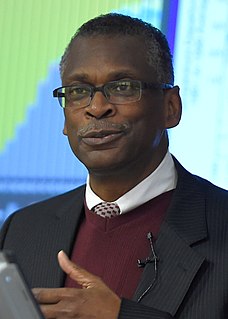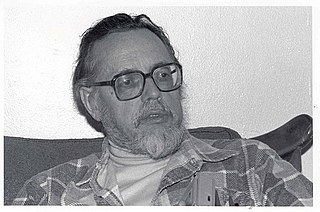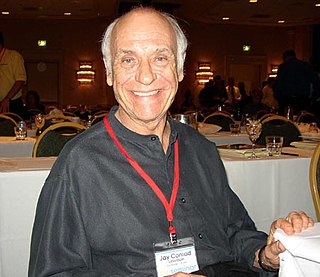A Quote by Lonnie Johnson
Being an independent inventor is tough. You develop a product, patent it, then you're looking for someone who will see the benefit from this technology. You assume all the investment and all the risk. It can be a challenge.
Related Quotes
Unlike return, however, risk is no more quantifiable at the end of an investment that it was at its beginning. Risk simply cannot be described by a single number. Intuitively we understand that risk varies from investment to investment: a government bond is not as risky as the stock of a high-technology company. But investments do not provide information about their risks the way food packages provide nutritional data.
Next came the Patent laws. These began in England in 1624; and, in this country, with the adoption of our constitution. Before then [these?], any man might instantly use what another had invented; so that the inventor had no special advantage from his own invention. The patent system changed this; secured to the inventor, for a limited time, the exclusive use of his invention; and thereby added the fuel of interest to the fire of genius, in the discovery and production of new and useful things.
A new product, technology, or innovation - such as Bitcoin - has the potential to give rise both to frauds and high-risk investment opportunities. Potential investors can be easily enticed with the promise of high returns in a new investment space and also may be less skeptical when assessing something novel, new, and cutting-edge.
The church seeks to help form people who can risk being peaceful in a violent world, risk being kind in a competitive world, risk being faithful in an age of cynicism, risk being gentle among those who admire the tough, risk love when it may not be returned, because we have the confidence that in Christ we have been reborn into a new reality.
We always see Aung San as a strong, tough woman. There are two stories running in parallel. You see the contradictions between the East and the West, and you see someone who does mundane and normal things - someone who's supposed to be a housewife - and then someone who's become important and imprisoned.
Then the challenge is, once you left brain it and build it, then when you're on stage you have to know it so well that you can get lost in it. I don't want to be onstage looking like a robot, I want to be at the end of the day very emotional and what feels like someone being up there rather than reciting things. That's always the challenge, to analyze and then somehow lose yourself in something you absolutely know backwards and forwards. And nothing's going to surprise you, but you have to be surprised by it and let it surprise you.
History has taught us: never underestimate the amount of money, time, and effort someone will expend to thwart a security system. It's always better to assume the worst. Assume your adversaries are better than they are. Assume science and technology will soon be able to do things they cannot yet. Give yourself a margin for error. Give yourself more security than you need today. When the unexpected happens, you'll be glad you did.
The risk of an investment is described by both the probability and the potential amount of loss. The risk of an investment-the probability of an adverse outcome-is partly inherent in its very nature. A dollar spent on biotechnology research is a riskier investment than a dollar used to purchase utility equipment. The former has both a greater probability of loss and a greater percentage of the investment at stake.




































